The recovery of communities is a multifaceted process. This issue was discussed at the Inclusive Community Recovery Forum, an official event held in Kyiv on the eve of the conference on the recovery of Ukraine, scheduled for June 11-12 in Berlin. Forum participants – representatives of communities, civil society organizations, and national and international development partners – talked about the results of their work, shared experiences and ideas, discussed ways to solve problems, etc. However, the role of the media in the recovery of communities was practically not discussed at this forum. Meanwhile, the coverage of the processes taking place in the communities is very important; it is necessary, first of all, for the inhabitants of certain territories to know and understand what is happening in their communities, to be included in the process, and to join the cause.
Therefore, the National Union of Journalists of Ukraine (NUJU) paid attention to this aspect, first of all, on the sidelines of the forum, an exhibition with video stories of Ukrainian journalists and newspapers published near the front line today. The discussion of the issue of media recovery took place on the sidelines of the forum.
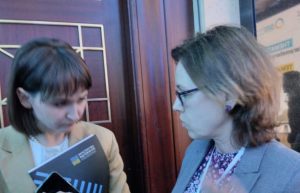
“The main emphasis is on the work of the network of Journalists’ Solidarity Centers (JSC), which have become safety places for hundreds of media workers, especially in the cities of Kharkiv, Zaporizhzhia, and Dnipro. On this day, we talked a lot with people who came from different parts of the country. Our goal is to convey the idea that it is impossible to talk about the recovery of Ukraine and not talk about the recovery of the media. Our team circulated an appeal to include the issue of media recovery in the agenda of the Ukraine recovery conference in Berlin in June of this year. The guests of the forum (which is a preparatory stage on the eve of the conference in Germany) received the text of the appeal, which has already been signed by more than 60 Ukrainian and foreign media, public organizations, and journalists. We think that everyone knows what we do. No, not everyone. I saw that for many of those present, this formulation of the question – recovery of the media on a par with critical infrastructure – was a revelation. Many people were surprised that the media close to the areas of hostilities were still working,” said Lina Kushch, the First Secretary of the NUJU.
However, if the problem is talked about, it becomes more visible. There are more and more people who show interest, support the recovery of the media, and pay attention to the role of journalists in the overall process, noting that it is a matter of strategic direction.
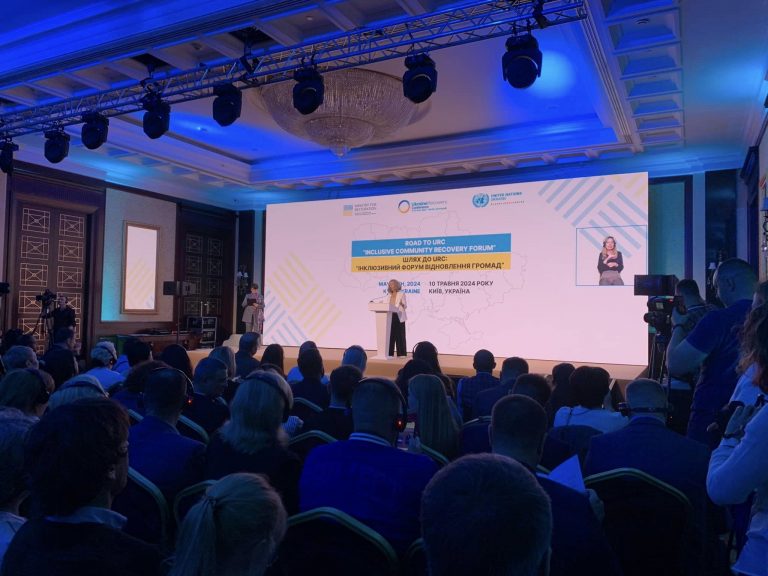
In particular, Lina Kushch had a fruitful conversation with the Deputy Minister of Reconstruction Oleksandra Azarkhina, talked about the situation in the media industry, presented copies of local newspapers that resumed their editions with the support of the NUJU and international partners. She also emphasized the importance of restoring the media, primarily local ones, in Ukraine. Lina Kushch also drew attention to the fact that during a conversation with representatives of the German Association of Journalists regarding the conference on the recovery of Ukraine in Berlin, German colleagues said that their media was recognized as a critical infrastructure. Apparently, this problem was not properly focused on in our country.
“I’m on your side,” remarked Oleksandra Azarkhina. She visited the exhibition presented by the NUJU. The deputy minister also commented on the vision of the problem of media support from the perspective of the Ministry of Reconstruction (Ministry of Development of Communities, Territories, and Infrastructure of Ukraine).
“From the position of the ministry, the most important thing for us is that such a vision appears precisely in the stream of strategic documents of communities. That is, now that the state has updated the state development strategy, regions have to automatically update their planning documents, and communities will update them if they wish. It is very important for us that this is specifically spelled out at the level of local documents. We are preparing methodological recommendations in which we will also recommend this. Moreover, the State Strategy for Regional Development also has aspects of informing and raising awareness of the population. You have to rely on this. When we talk about priorities regarding investments, donor aid, etc., for us, of course, the priority is to focus on ensuring the population’s access to basic services, such as heat, electricity, water, and then everything else. Unfortunately, these are the realities of our wartime.
Nevertheless, we understand that when some of our partners, especially at the level of other countries, have the opportunity to help in something that is not as urgent as energy, then we need to ask for help. Even if they do not immediately provide support for rebuilding your industry, they will definitely support examination. And this is the key. I will support you and thank you for your work,” Oleksandra Azarkhina stressed.
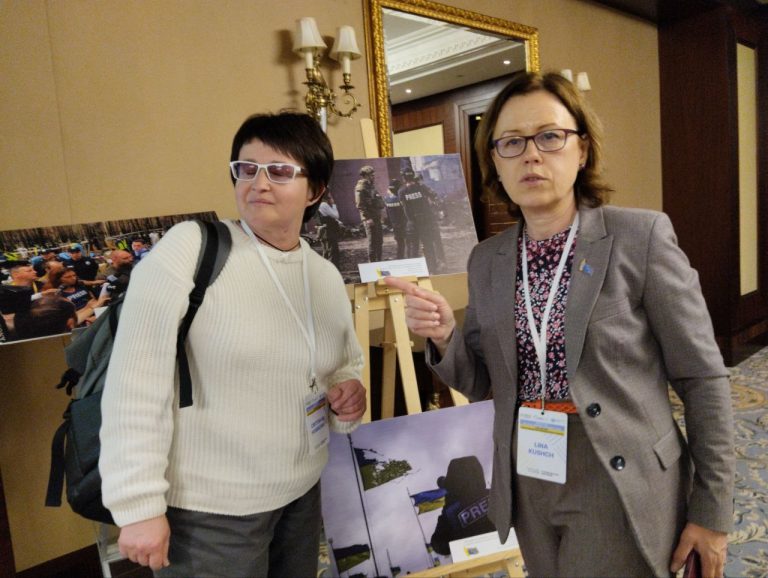
Journalists who visited the NUJU exhibition during the Inclusive Community Recovery Forum also spoke about the need for media support.
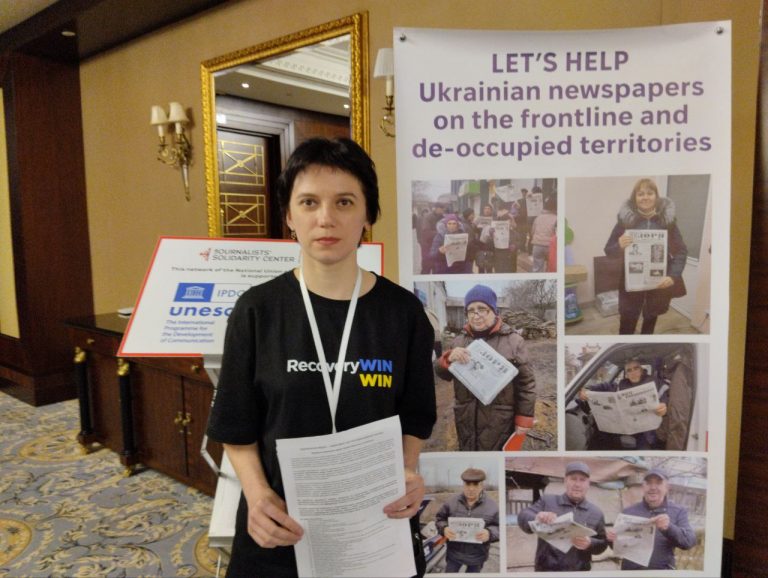
“The NUJU presented a very informative exhibition at the forum. Complemented by video, it shows how important the work of the media is in general and at this time in particular. It is also a great message for communities/participants of the forum, media, especially local ones, need support to continue to play their invaluable role in informing the population about the events that are happening in communities, about what communities are doing, and what they can do for their recovery and even development in the current difficult time. I saw the interest of the forum participants in the exhibition, and it’s nice. I hope that the media will receive the support that will enable them to comprehensively fulfill their function. Media workers of our newspaper, Native Land. Hadiach Zemstvo Newspaper were convinced of how important this help is. After all, in order to ensure the financial stability of the newspaper, we not only carry out grant activities but also receive support from the residents of the community – in the form of donations and subscriptions. And our newspaper is supported by the military. So, we have the opportunity to publish a newspaper that has already entered history – it dates back to 1096, and in 1917-1918 it was edited by Olena Pchilka. I hope that all local newspapers of Ukraine, which are currently in a difficult situation, will be revived in order to continue to successfully create the annals of communities, the annals of Ukraine, – noted Svitlana Novikova – co-founder of the newspaper Native Land. Hadiach Zemstvo Newspaper, published in Hadiach, Poltava Region, said that it also signed an appeal to include the issue of media recovery on the agenda of the Ukraine recovery conference in Berlin.”
“It is significant that an exhibition by media workers is presented at the forum dedicated to inclusive recovery. After all, journalists, particularly local media, currently perform their work in particularly difficult conditions, but sometimes, it seems that there is a lack of understanding of this challenge at a wider level. The NUJU clearly presented these challenges at the exhibition. It was nice to see familiar media and faces of people who selflessly work in the front-line areas. The media also need support in recovery, there is no doubt about it,” emphasized Olha Stukalo, the editor-in-chief of Recovery Windows.
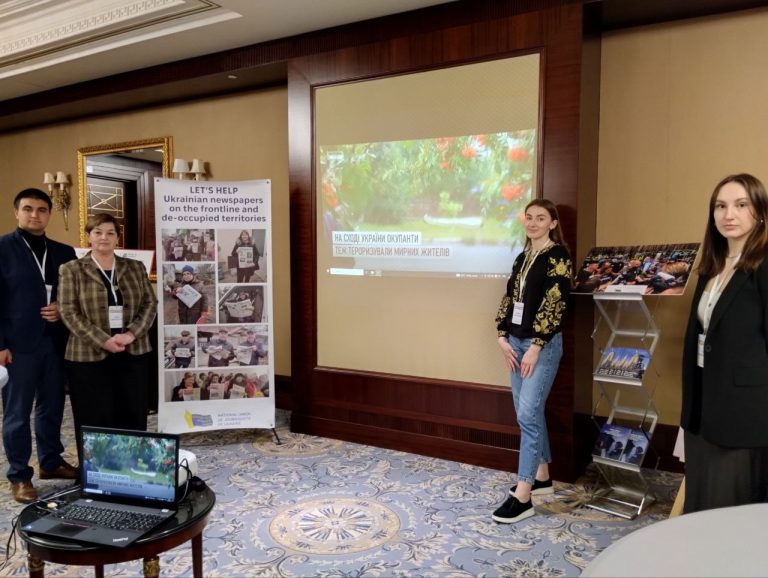
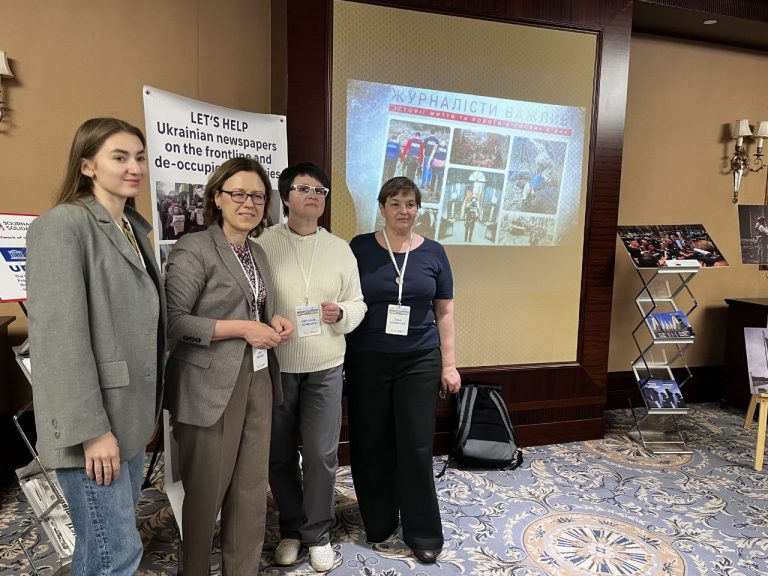
NUJU Information Service

 THE NATIONAL UNION OF
JOURNALISTS OF UKRAINE
THE NATIONAL UNION OF
JOURNALISTS OF UKRAINE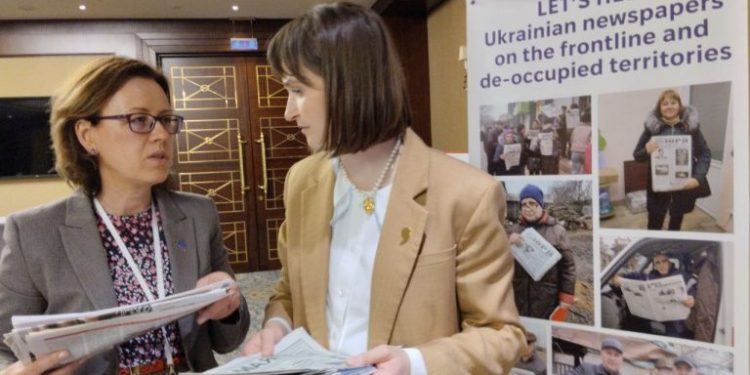
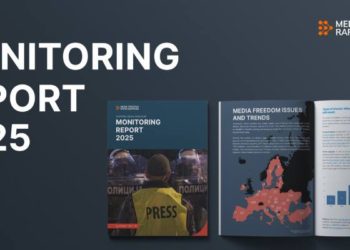
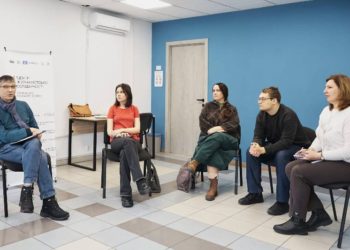
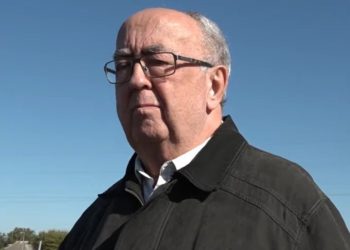













Discussion about this post